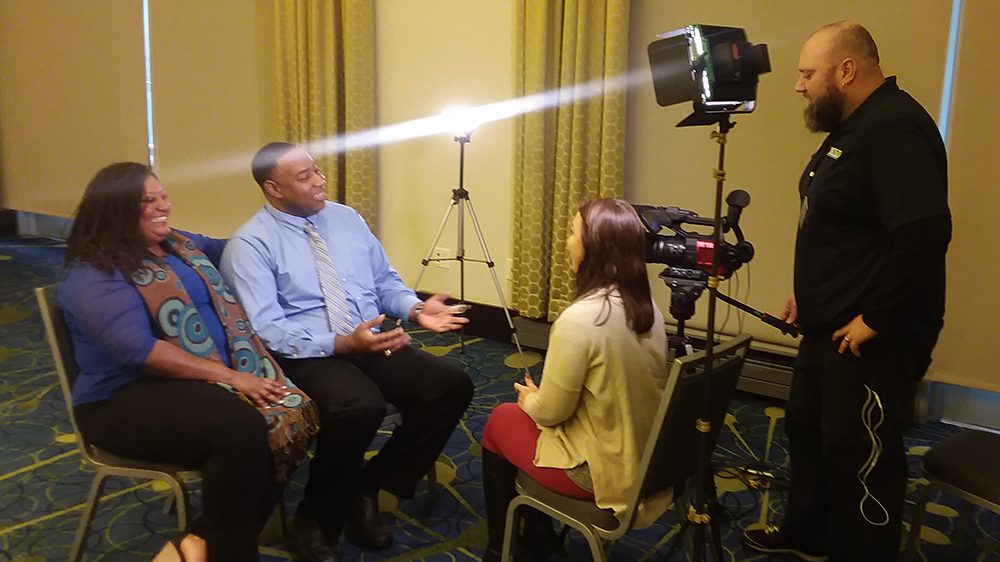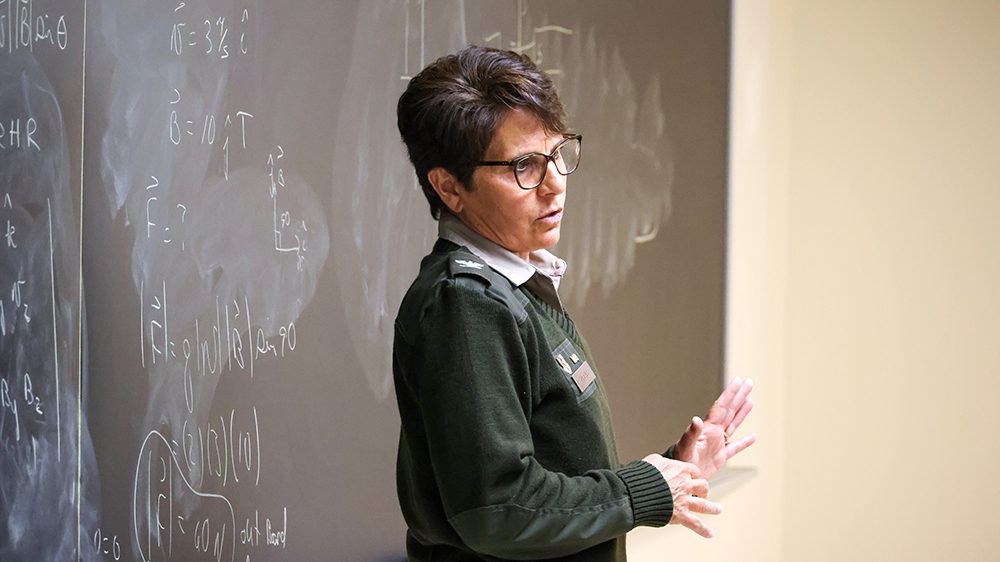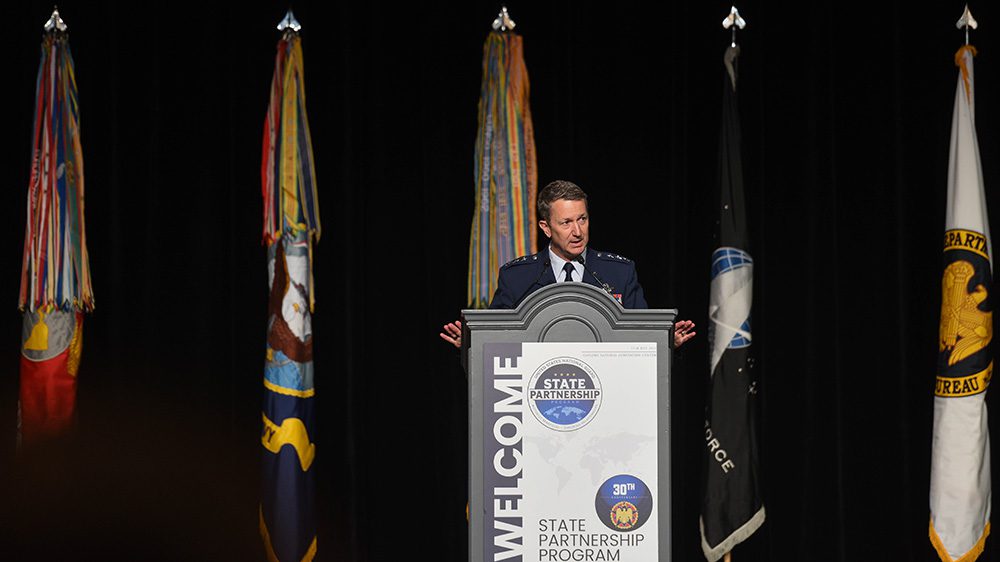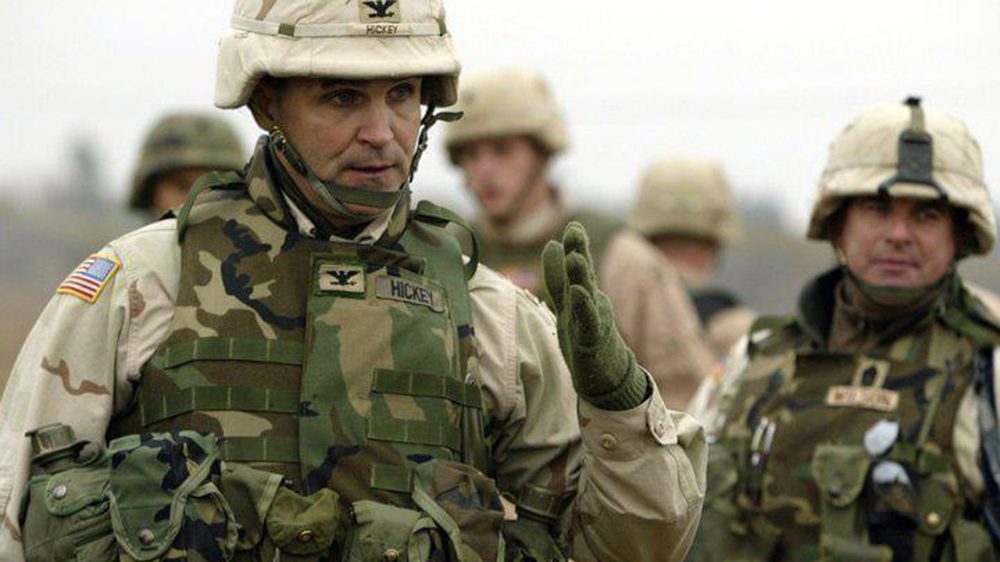Brian Jordan ’93 is an inventor. His head is overflowing with new concepts, and he’s never afraid of running out of ideas. A retired Naval aviator, Jordan started his own business after finishing his military career.
“I thought [my passion] was flying,” Jordan said. “Flying was something I liked to do, but I wouldn’t say I loved it. I found out what I loved was … creating products and coming up with new ideas, figuring out new ways of doing things. That’s what I love to do.”
His inventions don’t conform to an idea, a type or any mold. They’re the representation of inspiration – straight from Jordan’s brain vault of ideas.
“We’re kind of all over the place,” Jordan said, explaining the wide variety of products his company has designed. “We wanted a company where we’re led by inspiration. We’re driven by inspiration and not necessarily by a specific field.”
Necessity brought one of Jordan’s ideas to reality early on. While cleaning out his garage one day, he picked up a 1950s-era tool – not realizing that the tool had an electrical short and that the power was flowing. The tool cut his fingers, resulting in the loss of part of an index finger and thumb.
When he inquired about prosthetics, he was surprised to learn that fingers are not considered “essential.” Insurance generally covers only cosmetic – not functional – prosthetics. There were a few companies making functional prosthetics for fingers and toes; however, specialized engineering and costly materials raise the cost – up to $10,000 per digit.
“So, being an engineer and a scientist, I decided to create my own prosthetic,” Jordan said.
A few months later, he was – and still is – using his invention for his everyday activities. His invention, called Digitouch, garnered attention in a couple of sectors.
In February 2019, Jordan was one of 11 innovators nationally recognized on Capitol Hill at the Legislative Client Showcase and Reception. The annual event is organized by America’s Small Business Development Centers and showcases entrepreneurship to federal legislators.
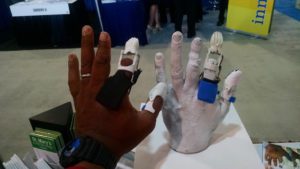
Jordan models the DigiTouch prosthetics. He invented the prosthetic fingers after losing part of an index finger and thumb in an accident.
On a much smaller – but more impactful – scale, people who need prosthetic digits have heard about Digitouch. After learning how much a working prosthetic digit cost and how little of that cost was commonly covered by insurance, the Jordans set up a nonprofit to help others. The nonprofit raises funds to cover individual cases. It’s different from other types of medical fundraising, Jordan explained. The general public doesn’t understand how essential digits really are. Despite the challenges in fundraising, he’s been able to assist people throughout the country who have lost digits.
Asking for help – fundraising or otherwise – doesn’t come naturally to Jordan. “My wife calls me ‘an island of one,’” he chuckled.
His small company, Jordan Research and Design, is small team of three. Jordan has the inspiration; he’s the visionary-in-chief. His wife, Donna, does the accounting and the numbers. The third full-time employee, Ben Harding, is the chief designer.
Inventing, innovating and a head full of ideas all brief well. But moving those ideas from gray matter to actual production takes painstaking technical attention to detail. Plus, there’s the nuts-and-bolts of any business – payroll, budget and, for inventors, patents.
To get everything done, the team needs to work together. That was something Jordan learned at VMI.
Cadet life and an Institute education taught Jordan many things. Asking for help was a big one. He played football and enjoyed it tremendously. He has memories from his years in barracks that he values. It was the academics, though, that really brought him to VMI.
“That was the main reason I went there – for the education,” Jordan said. “That was going to get me to the goal I needed to reach.”
And to reach that goal, he couldn’t do it alone. “At VMI, what I learned was: You can’t do it by yourself. You simply needed help from others,” Jordan said, remembering tutoring sessions and asking professors for assistance.
Leaving his island of one to join a team has paid big dividends for Jordan. First, graduating from VMI, then during Navy flight school and now in his business.
He is contentedly inventing things, ranging from a bookshelf that also serves as emergency boat transportation during floods, a child- and pet-safe cleaner and unique toys. Once he and Harding have the products working well, they “kick them over the fence” and find other companies to market, produce and sell the inventions.
Jordan has realized his passion and is doing what he loves. Even the best jobs, though, have a to-do list. Sometimes “you have to do some things that you’re not good at – the things you don’t want to do,” he pointed out.
When any difficulties or annoyances arise, he remembers something else he learned at VMI: Perseverance. “VMI gave me that focus to grind through,” he said.
